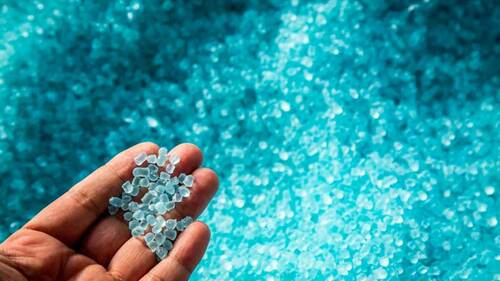Mura Announce New Feedstock Partnership with Elite Recycling Solutions for First Hydro-PRT Site at Wilton, Teesside
Mura Technology, the global pioneer of a next generation advanced plastic recycling solution, today announces the signing of a feedstock supply contract with Elite Recycling Solutions.
Elite will supply post-use plastic packaging to Mura Technology’s world-first hydrothermal advanced recycling facility at the Wilton International science park in Wilton, Teesside, UK, which is currently in its final commissioning phase and expected to commence operation in mid-2024. Using the unique Hydro-PRT process, Mura will convert the waste into valuable hydrocarbon products which can then be used to manufacture new plastic.
The agreement with Elite follows an existing agreement between Mura Technology and Geminor, who will act as the principal feedstock supplier for this first site.
Dr Steve Mahon, CEO of Mura Technology, commented: “We are delighted to partner with another industry-leading company in the waste management sector. Cross-sector collaboration of this kind is enabling us to turn post-use waste plastic into a valuable commodity used to create fossil-replacement feedstocks for the manufacture of new plastic products.”
Chris Smits, Managing Director at Elite Recycling Solutions, commented: “We’re really excited to be an approved UK-based commercial feedstock partner to Mura Technology. The relationship enables us to access this pioneering solution for our clients’ mixed, post-use and currently unrecyclable plastics. Mura Technology’s unique Hydro-PRT process will enable us to work closely with our clients to recycle unrecyclable plastics, reduce waste and increase recycling rates, and to deliver cost savings, as landfill and incineration taxes increase in the near future – all of which plays a key part in driving our clients environmental and sustainability credentials.”
Mura Technology’s process, Hydro-PRT, is the next generation of advanced plastic recycling due to its use of supercritical water (water under elevated pressure and temperature), which distinguishes it from alternative recycling processes, such as pyrolysis. The use of supercritical water ensures efficient and scalable conversion of plastic waste to hydrocarbons, enables the recycling of a wide range plastics, such as post-consumer packaging, and results in high yields of recycled hydrocarbons for use in the manufacture of virgin-quality, recycled plastics. Through this process, there is no limit to the number of times the same material can be recycled – meaning Hydro-PRT has the potential to significantly reduce the need for fossil resource in plastic production and permanently increase material circularity in the plastics industry.
By providing a route to recycle these hard to recycle materials, Mura has created a complementary process to operate alongside traditional mechanical recycling, not compete with it, as highlighted in the 2023 technical report by the European Commission’s Joint Research Centre (JRC)[1].
The first independent LCA by Warwick Manufacturing Group (WMG) of the University of Warwick in 2023 showed that for every tonne of waste plastic processed via Hydro-PRT, 1.8t CO2 eq. are saved when compared to the incineration of plastic waste, a current method of waste management – an 80% carbon emissions saving and equivalent to 40,000 tonnes CO2 eq. annually from operations at Mura’s first site in Teesside.
A new 2024 WMG study due to be published in June evaluated the carbon impacts of a combination of waste management approaches. The study found that combining advanced recycling with mechanical recycling resulted in a 42% carbon emissions saving when compared to the existing model of incineration and mechanical recycling, making incineration of plastic waste no longer the preferred option.
[1] [i] Environmental and Economic Assessment of Plastic Waste Recycling, Garcia-Gutierrez, P., Amadei, A.M., Klenert, D., Nessi, S., Tonini, D., Tosches, D., Ardente, F., Saveyn, H. European Commission, Joint Research Centre JRC Publications Repository – Environmental and economic assessment of plastic waste recycling (europa.eu)
Latest news
MSSA doubles production capacity for sodium methylate in La Rochelle, France
The strategic investment will double MSSA's annual production capacity for sodium methylate from 20,000 tonnes to 40,000 tonnes, reinforcing the company's commitment to meeting the growing demand f...
Dreexo Energy to Launch Circular Economy Plant in Cádiz, Advancing Sustainable Industry in Andalucía
Construction of a new facility in the Cádiz Free Trade Zone. The project is expected to break ground in early 2026 and be operational by year’s end.
BASF invests in new semiconductor-grade sulfuric acid plant in Ludwigshafen, Germany
BASF SE, Ludwigshafen →Essential ultra-pure chemical enabling advanced semiconductor manufacturing processes New capacity meets growing demand for the manufacturing of chips in Europe
Vioneo appoints Wood to design world’s first industrial scale fossil-free plastics facility in Antwerp, Belgium
Port Of Antwerp →the renewably powered and energy efficient plant will be the first facility in the world capable of achieving the production of fossil-free plastics using green methanol at an industrial scale.

